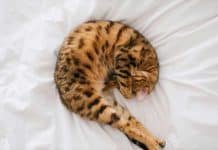Excessive saliva production is also known as hypersalivation or paternalism occurs in all mammals, including cats. Some drooling can be a normal part of cat behavior, but drooling too much is a problem.
In this article, we explain the most common causes of cat hypersalivation and what you can do in each case.
Why is my cat drooling a lot?
Drooling in cats could be caused by a number of reasons. If you see your cat drooling, here’s what you need to know.
1- Stress and cat drooling
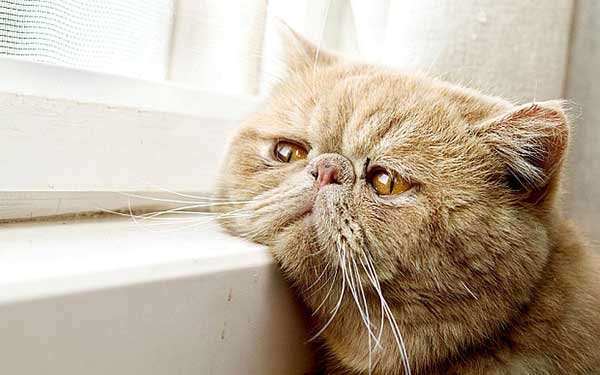
Cats are very sensitive animals and can be easily susceptible to stress.
Among the symptoms which indicate a cat is stressed, we can find uncontrolled drooling.
When something causes excessive fear or nervousness in the cat, their neurological system sends a series of orders to the nervous system to act as security in situations they aren’t able to control.
This process can express itself in hypersalivation and other problems such as dilated pupils.
The solution is to find the stressor and eliminate it.
2- Poisoning and cat drooling
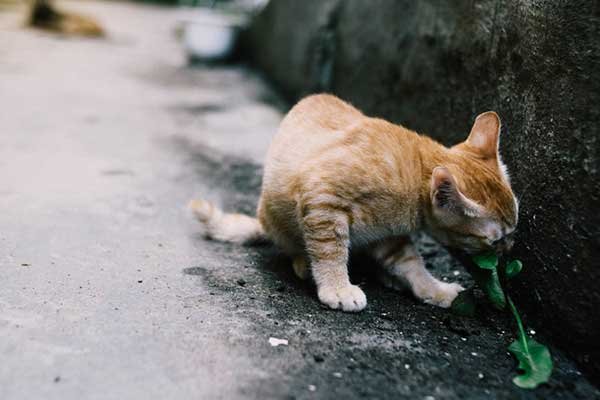
A clear sign of intoxication or poisoning is excessive saliva production or foaming at the mouth.
If poisoning is suspected, it is essential to immediately go to the veterinarian.
Poisoning can occur after eating food of a per condition or eating toxic substances, such as hygiene products.
If the cat has been poisoned, they will likely need to see a specialist.
On the other hand, excessive drooling can occur after mild intoxication, such as when they lick themselves after being given flea treatment or other anti-parasitic products.
3- Nausea and Vomiting
Both nausea and vomiting can increase salivation. This can be the consequence of hairball formation, gastrointestinal problems or the onset of a disease.
If you nourish your cat is drooling a long after expelling a hairball, it will probably resolve itself soon.
If they are frequently nausea or vomiting, then it’s necessary to take them to the vet for a proper diagnosis.
4- Medication side effects
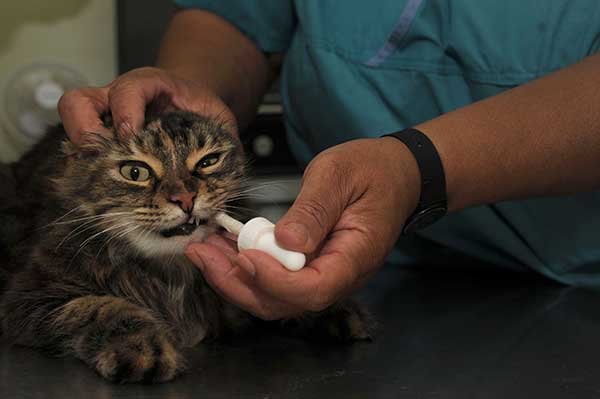
Anyone who lives with a cat knows how complicated they can be to medicate, especially giving it to them in the form of oral medication.
In these cases, it’s common to see a cat drool everywhere and after ingesting the dose, it’s a consequence of the stress suffered during the process of drug administration which may be unpleasant.
In any case, it usually disappears after a while.
5- Oral problems
Cavities, tongue lacerations, gingivitis, bacterial infections, ulcers, periodontitis, or even oral tumors can lead to excessive drooling.
It’s usually accompanied by a bad smell and an unusual color of saliva, such as red or green.
Additionally, problems related to the pharynx, such as pharyngitis, may lead to drooling.
6- Foreign bodies
Less frequently, excessive drooling may be due to a foreign body.
If your cat has a piece of food between their teeth or an object stuck in their throat, they can develop hypersalivation.
In these cases, it’s common to see the cat coughing or gagging to expel the object that bothers them.
Especially when something is stuck, it’s essential we take them to event to have it safely removed.
7- Problems associated with old age
As a cat ages, a number of age-related problems and pathologies can appear.
Osteoarthritis or renal failure, our diseases which usually appear in older cats and can cause hypersalivation among other symptoms.
8- Pleasure and cat drooling
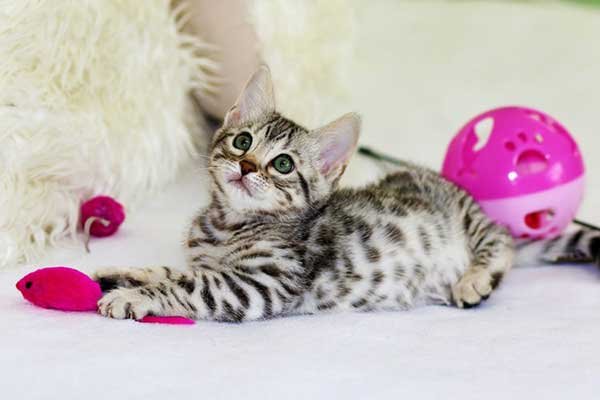
Not all causes of excessive drooling are negative.
A cat may also drool for pure pleasure or when they are very happy.
For example, if you’ve just arrived home and your cat is glad to see you, they might drool out of excitement.
Also, if you’re about to give them their favorite treat and observe drooling, it’s probably due to perceiving the smell and their appetite being wetted.
Does your cat drool excessively? why do you think this maybe? Share your experiences in the comments below.



